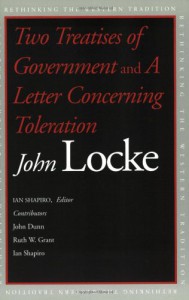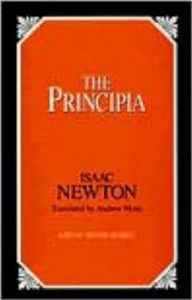
Locke’s
Essay is considered a foundational work for the new empiricism which arose out of the friction between Descartes with his rationalist followers and the old-school Aristotelian empiricists of the Scholastics. In true empiricist form, Locke binds himself to the proposition that all knowledge can only be gained through the senses but, in an interesting twist, also refuses to put blind faith in the accuracy of the senses.
To begin, Locke spends Book I rejecting any notion that there is innate knowledge. It’s a fairly simple premise which is drawn out unnecessarily. If there was innate knowledge, then there would be no dispute among individuals about it. Children would have it. People of other cultures would have it. Everyone. Since that’s not the case, there isn’t innate knowledge. The closest he comes is in the perception of God. Most (but not all) cultures have an understanding of a higher power. However, he maintains consistency and argues that the existence of God is something that is rationally concluded by observations in the world.
The second and third books, which are the bulk of the
Essay focus on definitions. The nature of Ideas and Substance is discussed at length. Ideas are broken down into simple and complex ideas. Essentially, simple ideas are the ones that are ones which define themselves. Power, pain, pleasure, etc. He similarly breaks down Substance into primary, secondary and tertiary qualities. The primacy of a Substance is that which is the core essence of a thing. Since he’s unable to define a thing’s core essence, Locke intellectually creates a substratum of existence in which a thing can be purely defined. This seems to go against the empiricist ethic because we have no experience of this substratum.
Book IV is where he gets to the heart of his epistemology. Which, quite frankly, is a bit of a let down. For Locke, “our highest degree of knowledge is intuitive, without reasoning.”
Pg. 321. He copies Descartes in his conclusion that we know only clear and distinct truths. For him, it’s a conclusion reached by recognizing our experience. For Descarte, it was an
a priori recognition.
Locke was heavily influenced by Robert Boyle’s Corpuscular Hypothesis at the time and his views defining Ideas and Substance clearly reflect that impact. It’s surprising then that Locke fails to appreciate how scientific advancements will affect our ability to experience new things which may give a greater foundation for knowledge. Locke views science as a means to develop our judgment about knowledge, but does not actually increase knowledge itself. A fine distinction which ultimately seems fairly meaningless. Locke assumes that the experience of his time could provide the most clear and distinct truths which form a basis for knowledge. Additionally, since he’s a religious man, he allows for revelation from God as another avenue for knowledge.
The edition of
An Essay Concerning Human Understanding edited by Winkler is an abridgment. I was debating whether I should return this to the library and get the full work, but I’m glad I stuck with the abridged edition. Even in this edition, Locke is repetitive and wordy. I’m sure I lost some of the logical build-up to his conclusions, but I got the gist. It was groundbreaking at the time and for that it has to be appreciated. However, since Locke limited his knowledge to what could be experienced in the late 17th century, it seems considerably less relevant for the 21st century. In this age of DNA, molecular chemistry and microbiology, extensive discussion about the definitional difference between a horse and piece of gold seems a bit unnecessary.
 About halfway through Osama, I realized I had a mistake. Tidhar had me thinking this was just some alt-world, modern noir detective story. But he’s aiming for something more. I had not paid enough close attention to the details. I had been too wrapped up in his wonderfully worded short chapters and missed that the plot was slipping by. Once I realized, I don’t think I caught back up.
About halfway through Osama, I realized I had a mistake. Tidhar had me thinking this was just some alt-world, modern noir detective story. But he’s aiming for something more. I had not paid enough close attention to the details. I had been too wrapped up in his wonderfully worded short chapters and missed that the plot was slipping by. Once I realized, I don’t think I caught back up.















